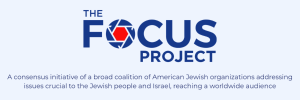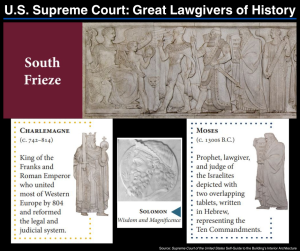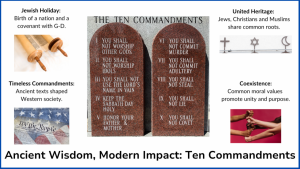
![]()
A terrorist in Colorado attacked a group of Jews marching in support of Israeli hostages who are still held in Gaza – stunning the nation and the Jewish community worldwide. The attacker, an Egyptian national who spent a year planning the assault, screamed “Free Palestine” as he was taken down by bystanders and arrested by police. He told investigators that he wanted to “kill all Zionist people,” and vowed to “do it again.”
The Boulder attack was the latest act of hatred against Jews – antisemitism, only a week after two Israeli embassy staffers were gunned down in the nation’s capital and just weeks after an arson attack on Gov. Josh Shapiro’s mansion in Pennsylvania. Assaults on Jewish businesses, restaurants and orthodox Jews in traditional religious clothing walking the streets of New York City and synagogue worshippers in Texas, seem to be increasing weekly.
This latest outrage – charged as both domestic terrorism and a hate crime by the U.S. Attorney General and the FBI – left two victims in critical condition – including an 88-year-old Holocaust survivor who suffered severe burn wounds – and injured 10 others. The heinous, pre-meditated attack left the Jewish world fearful and wondering where and when the next attack will take place.
The anxiety and fear plaguing the Jewish community has been steadily increasing since the October 7, 2023, Hamas terror attack on Israel and the Israeli response in Gaza. Since then, there have been violent attacks against Jews around the world, hundreds of pro-Hamas rallies on college campuses and in the streets of major cities, call for the destruction of Israel and the shunning and exclusion of Jews from many social activities they once took part in.
“Sadly, none of this is surprising,” the ADL stated. “In fact, it’s entirely predictable. This is precisely where anti-Jewish incitement leads. This is exactly what vicious anti-Zionism enables. Elected officials, community groups, media platforms, faith leaders — they all need to commit to taking action before this crisis escalates even further. Stop excusing antisemitic rhetoric. Stop platforming anti-Zionist hate. Stop equivocating when Jews are attacked.”
The office of Gov. Jared Polis invited faith and civic leaders and members of the community to honor “Boulder’s “strength, resilience, and unity and to stand up against antisemitism and hate.” The community is revising its Jewish Festival for next Sunday and is offering mental health resources and updated security measures.
We encourage you to visit the websites of some of our resource partner organizations:
![]()
STAY INFORMED – TALKING POINTS – ACTIONS TO CONSIDER – STORIES MAKING NEWS
![]()

Honoring the birth of a nation at Mount Sinai, the Jewish festival of Shavuot commemorates the Jewish people receiving the Torah. This pivotal event included the presentation of the Ten Commandments. They are foundational laws that echo across centuries and civilizations – forming the basis of ethical thought and legal systems. Christians celebrate Pentecost around the same time, building upon Jewish foundations, including the Ten Commandments. Shavuot is a religious observance for Jews and a powerful reminder of the principles that support Western civilization and provide a moral compass for billions of Jews, Christians and Muslims – revealing that our common ground is greater than any differences.
Revelation at Sinai: A Foundation for Faith and Freedom
Shavuot – often known as a celebration of the first harvest – also symbolizes the annual renewal of the covenant forged with God. The holiday marks the culmination of the Exodus journey, transforming freed slaves into a people bound by a divine purpose and a shared moral code – the beginning of a national spirit. Unlike any other ancient law code, the Ten Commandments were not dictated to a king, but revealed directly to the entire Israelite nation that stood together. Shavuot connects Jews to this foundational moment, reinforcing the values of ethical monotheism, justice and communal responsibility that have defined Jewish identity and guided Jewish life for millennia.
The Ten Commandments resonate with profound relevance in Western civilization today. “Thou shall not murder” is a cornerstone of any just society. “Thou shall not steal” supports our systems of law and commerce, emphasizing honesty and respect for property. “Thou shall not bear false witness” is crucial for the integrity of legal and social discourse, stressing the importance of truthfulness. To “honor your father and your mother” are important family values. The Commandments are more than religious tenets. They are ethical principles that contribute to a functioning and moral society that have influenced religions and cultures throughout the centuries.

Enduring Pillars: The Ten Commandments and Western Civilization
Within the halls of the U.S. Supreme Court, the “Great Lawgivers of History” wall sculpture depicts Moses holding the Ten commandments inscribed in Hebrew. This directly links a foundational text of Jewish tradition with Western law and the American legal system. Israel’s King Solomon – renowned for his “wisdom and magnificence” – also appears on the frieze. Other prominent historical figures include Justinian, Charlemagne and Muhammad, illustrating the diverse heritage of legal thought recognized within America.
The enduring influence of the Ten Commandments extends to much of Western civilization. Across centuries, the ethical and moral principles articulated to the Israelites have formed the basis of legal systems and societal norms. The Commandments provided the moral vision of Western legal systems, including foundational documents like England’s Magna Carta and France’s Napoleonic Code. The growing understanding of moral responsibility laid the groundwork for subsequent legal and ethical developments in the West.

Shared Heritage: The Ten Commandments Across Abrahamic Traditions
What often is overlooked in an age of division is the powerful, shared heritage that binds the world’s three great monotheistic faiths: Judaism, Christianity and Islam. While each tradition possesses its unique theological and historical narratives, the ethical bedrock of the Ten Commandments resonates deeply within all three, serving as a testament to a shared moral imperative. For Jews, they are the direct covenant with God. For Christians, Jesus affirmed their validity, stating he came not to abolish, but to fulfill the law. In Islam, while not named as a distinct set of “commandments” in the Quran, their core principles – monotheism, respect for parents, honesty, justice and the sanctity of life – are woven throughout the Islamic legal and ethical framework.

![]()

![]()

Here are a few ways to deepen your engagement:
![]()

Jewish American Heritage Month Wrap Up:
This month’s activities have included email blasts, social posts, heritage nights at baseball games, film screenings, family days, concerts, book talks, arts contests, and countless more.
There were many legislator-focused events, ranging from a Congressional Breakfast at the U.S. Capitol, to a Congressional staffers reception to City Hall celebrations on both coasts as well as state and local JAHM recognitions and celebrations across the country. There’s no denying this is a national, collaborative celebration. Thanks for your shared passion for uplifting the vibrant and varied stories of Jews in America.

![]()

The much-anticipated premiere episode of Generations, the first Jewish-centric, celebrity-driven, genealogy-themed television series, is now available on demand.
Watch Host Brad Pomerance take Camryn Manheim and Milo Manheim on a journey to explore their family history through Poland, Belgium, Switzerland, and the American South and Midwest.
Just click on this link to watch: https://shorturl.at/KoIoE.
And of course, please circulate the link to friends and family.
After you watch the episode, we would love to hear from you. What did you think? Do you want more Generations? Feedback at https://forms.gle/CducbVFkcA3a3xrB8.
If you would like more information about Generations, please reach out to Brad Pomerance at brad@jltv.tv.
Generations is a co-production of Jewish Life Television, JewishGen, and the Museum of Jewish Heritage.
![]()
Stay Informed | Speak Up | Take Action
Want to Read More of Our Talking Points? Did you miss a recent edition of The Focus Project? No need to search your inbox. Our most recently published editions are available on our website.
![]()

This content is developed by The Focus Project in partnership with MERCAZ USA. The Focus Project distributes weekly news and talking points on timely issues concerning Israel and the Jewish people, including antisemitism, anti-Zionism and the delegitimization of Israel. It represents a consensus view across a spectrum of major American Jewish organizations. MERCAZ USA recognizes and respects the diversity of views on these issues among its readers and the community at large.
![]()